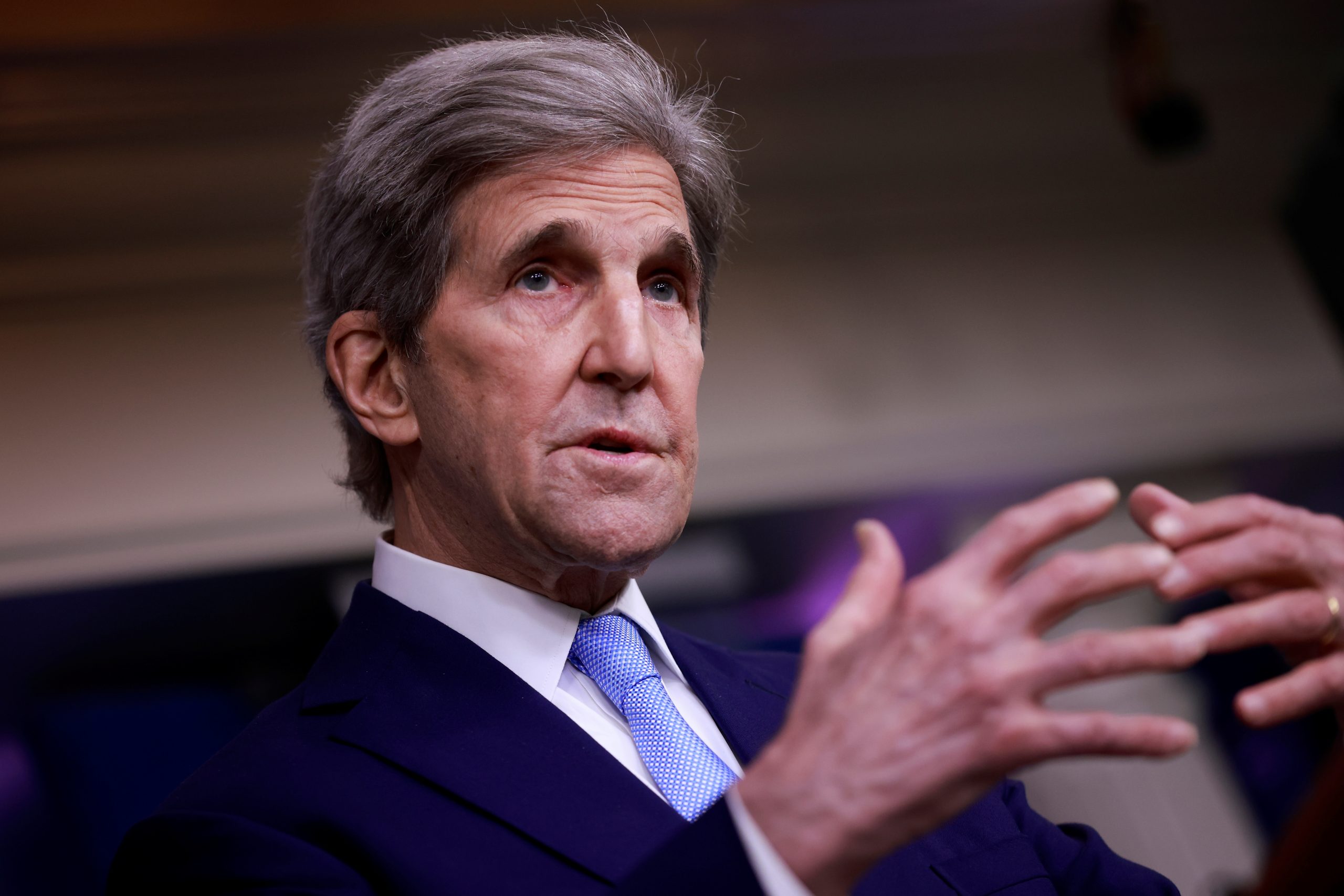Former Secretary of State John Kerry became the second Biden administration figure in as many days to effectively admit that pipelines are more efficient than other means for delivering fuel on Wednesday, just four months after the White House canceled the permit for the Keystone XL Pipeline.
Kerry, a climate alarmist who routinely flies across the globe and in 2017 bought a home for $11 million on the low-lying island of Martha’s Vineyard, despite warning years earlier that rising sea levels imperiled the coasts, made the comments before lawmakers at a House Foreign Affairs Committee hearing.
The current climate envoy to the Biden White House made the admission upon questioning from Republican Rep. Darrell Issa of California.
“Isn’t it true the pipelines are more carbon-delivery-efficient than trains, or trucks or other forms of delivery? If you could answer just that limited question,” Issa asked Kerry.
“Yeah, that is true,” Kerry responded. “I think that is true, but it doesn’t mean you necessarily want to be adding another line when there are other alternatives. But is it better than train, and better than that? Yes, it is.”
[firefly_embed]
[/firefly_embed]
Kerry, an alleged pipeline of information for the Iranian regime, had to include an aside with his response when making note of those “other alternatives,” apparently aware of the booby trap that was Issa’s question.
Right now, those “alternatives,” which are likely in the green energy category, are not realistic or feasible on a mass scale.
Someone should tell Kerry to ask Texans how green energy worked out for them in February during a freak winter storm. The state’s power grid essentially collapsed when, amid other woes — including, admittedly, a failure of natural gas wells and pipelines — wind farms froze and solar panels became so compacted with snow they failed to keep up with the demand.
People died from exposure to bitter cold.
At this moment, “other alternatives” certainly won’t help people across the Southeastern U.S. get gasoline following the complete shutdown of the crucial Colonial Pipeline last week due to a cyberattack.
What Kerry was essentially saying was that pipelines are the most efficient and environmentally friendly way to transport fuel from point A to point B, but that the point is irrelevant, because the current administration interns to cancel oil and gas without suitable green energy alternatives in place.
Where does that leave you and your family? Who cares, John Kerry is filthy rich, and has no need to worry about the problems of small people while he goes around building back better.
That’s presumably why Biden and Democrats made canceling the permit for the Keystone XL Pipeline such a high, day-one priority back in January.
They’re out to change the world, supporting the end of a system they view as being outdated while not caring what replaces it, or who is affected by it, so long as it isn’t them.
We heard language similar to Kerry’s on Tuesday from Energy Secretary Jennifer Granholm, who admitted when discussing the Colonial shutdown that pipelines are the best way to transport fuel.
“We have doubled down on ensuring that there’s an ability to truck oil in, gas in [to areas without enough fuel], but it’s — the pipe is the best way to go,” Granholm said.
After Biden canceled the Keystone XL pipeline, Energy Secretary Granholm says “pipe is the best way” to transport fuel pic.twitter.com/fIRaIPN8YQ
— RNC Research (@RNCResearch) May 11, 2021
Granhom and Kerry are probably the two most influential people in the Biden administration with regard to the country’s energy sector, and both admitted in the span of about a day this week that pipelines are the safest and most efficient way to transport much-needed fuel, despite the administration’s previous demonization of pipelines.
During his admission, Kerry laughably invoked “alternatives.” If a pipeline, such as the Keystone XL Pipeline or the Colonial Pipeline, is so admittedly sensible and safe, at what point would an alternative even become necessary?
It wouldn’t — not unless one had plans which they were not yet ready to expound upon.
This article appeared originally on The Western Journal.

























 Continue with Google
Continue with Google